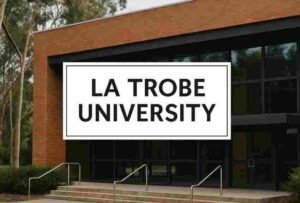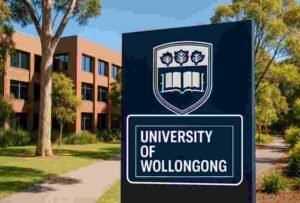Study in Australia
Australia offers top universities and global courses. Students enjoy a safe and multicultural lifestyle. Stubard helps with admissions, visas, and living arrangements. We make your move to Australia easy and worry-free.

Study Abroad in Australia: A How-to-Guide for Indian Students
Australia has been ranked among the three most desired study destinations by Indian students in the world. It has over 1,20,000 Indian students who are already studying in Australia, and the country boasts of having internationally ranked universities, high levels of academic performance, industry connections, and good post-study employment options.
The education system in Australia is practical, research-based, innovative, and employable. If you want to pursue engineering, IT, business, healthcare, data science, or hospitality, studying in Australia will prepare you with global experience and globally marketable skills.
All the aspects an Indian student should know about studying in Australia include admissions, costs, best universities, scholarships, visas, working opportunities, student accommodation, student life, etc.
Reasons Why Indian Students Prefer Studying in Australia
Indian students prefer studying in Australia because of the quality education it offers, good employment capabilities, the right to work after studies, and its multicultural nature.
Australia has some of the best reasons why you should study there:
- World-ranked universities and institutions.
- Job-related and industry-related courses.
- Heavy focus on practical education and internships.
- Flexible employment as a student.
- Post-Study Work Visa 2-4 years.
- International degrees.
- Good quality of life and a safe city.
- The Indian student body is large and accommodating.
Australia provides the Indian students with the optimum combination of academic excellence, lifestyle, and long-term career opportunities.
Quick Facts About Australia
Feature | Details |
Capital | Canberra |
Top Cities to Study | Sydney, Melbourne, Brisbane, Perth, Adelaide |
Popular Fields | IT, Engineering, Business, Healthcare, Hospitality |
Tuition Fees | ₹15–35 lakh/year |
Living Cost | ₹90,000–1,50,000/month |
Intakes | February, July, November |
Scholarships | Govt. & University-funded |
Indian Student-Friendly Education System in Australia
The Australian system of education is worldwide admired, adaptive, and career-conscious, which enables students to have both formal and practical experiences.
Study Levels:
- Diploma / Advanced Diploma: 1-2 years.
- Bachelor’s: 3–4 years
- Master’s: 1–2 years
- PhD: 3–4 years
Types of Institutions:
- Public Universities: Research-intensive, world-ranked.
- TAFE Institutes: Practical and Vocational training.
- Privatized Colleges: Specialty courses.
Its principal intake is the February intake, followed by July.
The Best Majors to Study in Australia as an Indian Student
Australia enjoys a good reputation in STEM, healthcare, business, and applied sciences.
Popular Programs:
- Computer Science & IT: Data Science, Network Security, Artificial Intelligence, Software Engineering.
- Engineering: Civil, Mechanical, Electrical, Mining, Environmental.
- Business & Management: MBA, Finance, Marketing, Accounting, Business Analytics.
- Healthcare & Life Sciences: Nursing, Public Health, Biomedical Science.
- Hospitality and Tourism Studies: Hotel Management, Event Management.
- Education & Social Sciences: Education, Psychology, Social work.
Admission Requirements – Indian Students
For Bachelor’s:
- Class 12 completion
- IELTS 6.0–6.5 (no band less than 5.5 or 6.0)
- SAT not mandatory
- SOP + academic profile
For Master’s:
- Recognized bachelor’s degree
- IELTS 6.5–7.0 / TOEFL
- GRE/GMAT (program-dependent)
- SOP + Resume + LORs
Common Documents:
- Passport
- Academic transcripts
- Statement of Purpose
- Letters of Recommendation
- English proficiency scores
- Resume / Portfolio (where necessary)
Apply 5–7 months before intake.
Indian Student Visa to Australia (Subclass 500)
Indian students would need to apply for the Student Visa (Subclass 500).
Documents Required:
- Confirmation of Enrolment (CoE) is required for every foreign student, irrespective of their host country of origin.
- Valid passport
- Evidence of solvency (AUD 24,505/year to cover living expenses)
- Tuition fee payment proof
- In the subsequent section, the genuine student (GS) statement will be given.
- Overseas Student Health cover (OSHC• Medical check (should it be necessary)
Visa processing time: 4-8 weeks (can change depending on intake)
How Expensive It Is to Study in Australia?
Average Tuition Fees:
Program Level | Tuition Fees (INR/year) |
Diploma / Certificate | ₹10–18 lakh |
Bachelor’s | ₹15–30 lakh |
Master’s | ₹18–35 lakh |
MBA | ₹30–45 lakh |
PhD | Mostly funded |
Most doctoral programs include tuition remission and stipends.
The Cost of Living for Indian Students in Australia
Expense | Monthly Cost (AUD) | Approx INR |
Rent | 700–1,200 | ₹38,000–65,000 |
Food | 300–500 | ₹16,000–27,000 |
Transport | 120–200 | ₹6,500–11,000 |
Utilities | 100–150 | ₹5,500–8,000 |
Personal | 150–250 | ₹8,000–14,000 |
Sydney and Melbourne are more expensive; Adelaide, Perth, and Hobart are cheaper.
Top Indian Student Universities in Australia
QS Rank 2026 | University | Avg Fees (AUD) | Best Programs |
19 | 45,000–55,000 | Business, Research | |
20 | 45,000–55,000 | Engineering, IT | |
25 | 45,000–55,000 | Engineering, Medicine | |
32 | 40,000–50,000 | Science, Policy | |
36 | 40,000–50,000 | Pharmacy, Business | |
42 | 38,000–48,000 | Science, Engineering |
Australian degrees are universal and job marketable.
Indian Student Scholarships in Australia
Government and External Scholarships:
- Australian Awards Scholarships.
- Destination Australia Scholarships.
- This includes a research training program known as the Research Training Program (RTP).
University Scholarships:
- Merit-based tuition waivers
- Faculty-specific scholarships
- Research assistantships
Benefits Include:
- Part or complete tuition waiver.
- Living allowance
- Research funding
Apply 6–10 months early.
Study Intakes in Australia
Intake | Months | Notes |
Semester 1 | Feb | Main intake |
Semester 2 | Jul | Second intake |
Trimester 3 | Nov | Limited courses |
Work and Post-Study Opportunities
Part-time: 48 hours a week during study.
Full-time employment during breaks.
After this, students can take a temporary graduate visa subclass 485. The duration of the visa depends on the qualification and level of the students.
- Bachelor’s & Master’s: 2–3 years
- STEM and a few chosen degrees: up to 4 years.
- PhD: 4 years
Australia has great post-study employment opportunities and migration avenues.
Australian Student Accommodation
The Australian student accommodation is clean, secure, and controlled. These are on-campus, off-campus shared apartments, homestays, and purpose-built student accommodation (PBSA).
Types of accommodation are:
- Ensuite rooms
- Non-ensuite private rooms
- Shared rooms
- Studio apartments
- Shared flats and townhouses
They are usually equipped with Wi-Fi, ready-furnished rooms, kitchens, laundry, study rooms, gyms, and recreational areas. Students are able to make reservations online prior to arrival or request professional support services.
Australian Student Experience
Australia is the dream of many Indian students because of its good education and standard of living, coupled with an easy lifestyle. Australia is a diverse nation, and the cultural familiarity of the Indian students can be readily established through Indian communities, temples, restaurants, and festivals.
Melbourne, Sydney, Brisbane, Parramatta, and Clayton are among the cities that have a significant population of Indians, and students find it easy to feel at home. Australia also has the best traveling experiences, in terms of beaches, islands, deserts, and rainforests that the students can visit during their study term.
Some More Facts About Australia
Australia, officially the Commonwealth of Australia, includes the mainland of the Australian continent and numerous islands, including the major island of Tasmania. It is the sixth-largest country in the world in terms of area, so it is only one position above India, which is the seventh-largest in area. Australia consists of constitution monarchy with a parliamentary democracy.
There are several forms of transport in Australia, and it is highly dependent on road transport. Australia boasts more than 300 airports with paved runways. There is also a good rail network inside Australia. In the public transport across Australia, suburban rail, trams, light rail, and rapid transit are widely popular.
Australia is also good for tourists, and students can also spend some of their weekends or leisure time traveling across the nation. In fact, tourism is a significant part of the Australian economy. It has backpacking, birdwatching, arts, and culture tourism, markets, and a lot of other aspects.
English is a major language in Australia, and Australian English comprises a distinctive accent and lexicon. As per the 2021 census, 72% population speaks English in Australia. The other languages spoken here are Mandarin (2.7%), Arabic (1.4%), Vietnamese (1.3%), Cantonese (1.2%), and Punjabi (0.9%).
Australia does not have a state religion, and people are free to follow their own religions. From 43% to 46% people in Australia are Christians. There are also people of non-Christian religions living here; however, the population of each one of them is less than 5%. The non-Christian religions, in order of the number of followers, are Islam, Hinduism, Buddhism, Sikhism, and Judaism.
Therefore, students get a lot of amazing experiences while living in Australia without a second thought.
Final Note
Indian students choose Australia as one of the best study-abroad destinations in the world due to the world-class education, excellent lifestyle, strong career opportunities, and global exposure. Study in Australia for Indian students definitely proves to be one of the best decisions for them.
Cost of Living in Australia

Related Content
Frequently Asked Questions
In Australia, you find internationally ranked colleges, good employment opportunities, and the entitlement to work after studies.
It is moderately expensive, though good ROI because of high employability.
It is ₹15 to 45 lakh per year based on the course and institution.
The living cost in Australia is around AUD 1,500–2,500 per month.
The student visa fee is AUD 710 (approx.).
Yes, 48 hours/week when studying.
A Temporary Graduate Visa is provided to eligible graduates.
IT, Engineering, Business, Nursing, and Data Science are some most popular courses in Australia.
Yes, Australia is one of the safest nations for international students.








